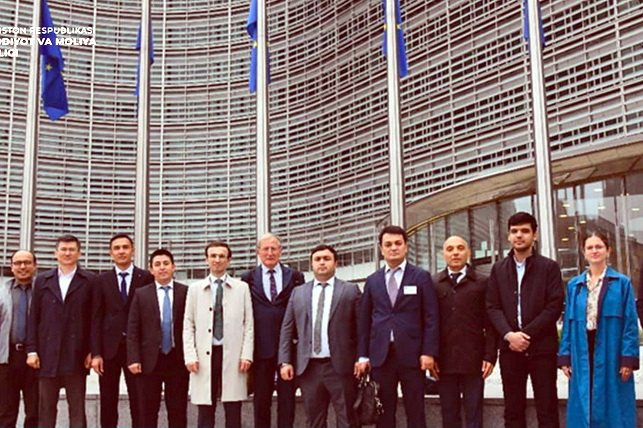
Uzbekistan Discusses Simplifying Carbon Regulation for Exports with the EU under the CBAM Framework
Uzbekistan Discusses Simplifying Carbon Regulation for Exports with the EU under the CBAM Framework
Tashkent, Uzbekistan (UzDaily.com) — On 3 October, members of the Uzbek delegation held a series of meetings with representatives of the European Commission’s Directorate-General for Taxation and Customs Union, as well as the Directorate-General for Climate Action.
During the first meeting with Tomasz Michalek, Coordinator for Eastern Europe and Central Asia in the International Alignment and Expansion Department of the EU Directorate-General for Taxation and Customs Union, the parties discussed the “Omnibus I” legislative package aimed at simplifying and strengthening the Carbon Border Adjustment Mechanism (CBAM) adopted by the European Council.
A key change under the new regulation is the exemption of products with a total mass of up to 50 tons per year from CBAM requirements.
As a reminder, the EU CBAM serves as a carbon regulation tool for products with high carbon emissions exported to the European Union. The mechanism applies a carbon tax and encourages clean industrial production in non-EU countries. CBAM is set to come into force in 2026.
Additionally, representatives of the European Commission’s Directorate-General for Climate Action — Thomas Bernheim, Stein Rasmussen, and Maja-Alexandra Dittel — discussed implementing carbon market mechanisms to achieve a low-carbon economy.
The discussions included the EU’s experience in reducing greenhouse gas emissions by enterprises, promoting the use of renewable energy, and improving energy efficiency in business operations. The meeting participants were provided with information on the EU Emissions Trading System (EU ETS), the sectors covered, emission limits, infrastructure for carbon quota trading, and the role of EU ETS in meeting the EU’s climate objectives.
Established in 2005, the EU ETS is one of the largest carbon trading systems in the world. Under this system, energy sector companies, large industrial enterprises, and airlines receive emission allowances. Participants emitting less than their quota can sell the surplus allowances, while those exceeding their limits must purchase additional quotas through market trading.
As of 2024, emissions covered by the system had decreased by 50% compared to 2005, and total revenue exceeded €200 billion. In 2023, over €43 billion was allocated to climate action projects.
Following the meetings, both sides noted that simplifying CBAM requirements could facilitate cooperation in providing technical support for implementing national emissions trading systems aligned with European standards between EU and non-EU countries.